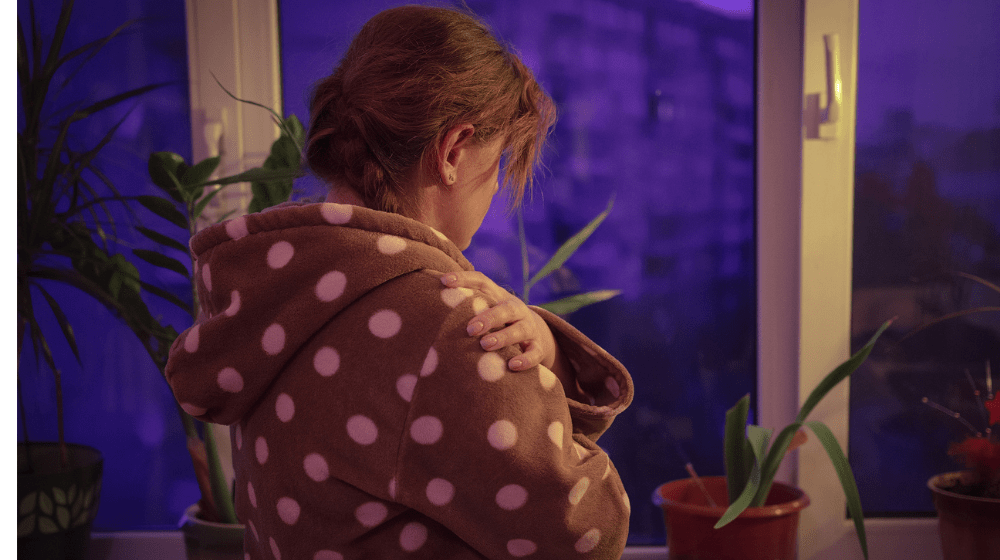The issue of domestic violence is complex and challenging because every story of violence is a story of a person, a family and sometimes of entire generations. Today, several state services are involved in resolving the situations of violence: police and law enforcement, social services, specialised services such as shelters, mobile teams of social and psychological assistance, crisis centres, educational and medical institutions. They are often joined by public associations, activists or caring people who are willing to help.
When working with women who have been abused, health and social workers identify the type of violence, its consequences, next steps, opportunities for rehabilitation and going back to normal life. Why are these testimonies so important? They give us an understanding of a woman’s inner world: her emotions, feelings, hesitations and doubts, self-doubt and the search for vital energy and motivation to solve problems. Without an understanding of a woman’s inner world, it is difficult to help her fully. A series of our stories about women who sought help from mobile teams or shelters, as well as about voluntary HIV testing, waiting for results and next steps in case of positive status.
International studies show that women who have experienced violence may be at higher risk of contracting HIV. Conversely, women with HIV are at higher risk of violence. The UNFPA, the United Nations Population Fund, together with the Women’s Health and Family Planning NGO conducts educational work in Odesa region, as well as provides an opportunity for women who have sought help from mobile teams and shelters to take an HIV test and develop an individual plan for solving the issue of violence.
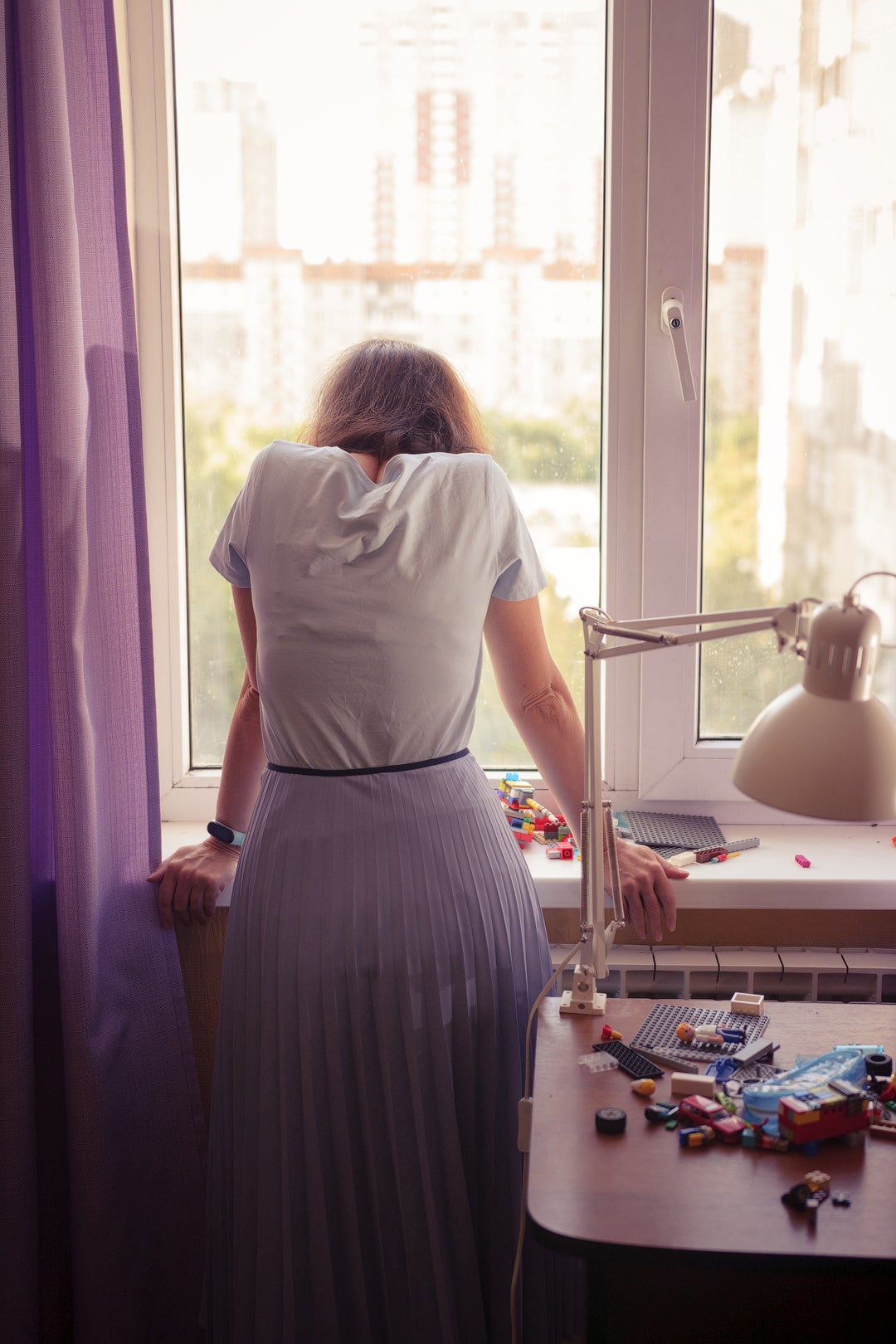
Maryna.
Maryna is 36, and her whole life can hardly be called easy. Maryna and her sister were brought up in a group home: their mother was deprived of parental rights.
The woman comes for the interview smiling, friendly and positive. She has two children with her, a boy and a girl, whom she hugs all the time. Well-behaved and earnest, they immediately agree to play on the playground during the interview with their mother.
Despite trying to get her family life back together twice, Maryna says that after the first divorce, she was left alone with two daughters. The next attempt to have a happy family also had an unfortunate end.
In her second marriage, Maryna gave birth to a son, Mark, and the couple bought and furnished a house in the countryside. Maryna had a job, despite periodic reproaches from her husband’s family for “taking in a woman with two children and having to provide for them”.
Everything ended after one conversation with her 9-year-old daughter. The girl said that the “new daddy” forced her to do certain things, which in the “grown-up” world are called the sexual molestation of minors. Maryna believed her daughter without hesitation and went to the doctor to examine the child. This was the end of the second marriage.
Maryna started looking for a solution to protect her daughters. She was not stopped by life, house, possessions and children’s toys – the woman left her husband. She had to go through humiliating interviews with the police, and then she found herself in the Odesa shelter for victims of violence. Psychologists started working with Maryna and her eldest daughter, and the woman realised that her impulse to leave was the only right thing to do.
Maryna was offered HIV testing at the shelter. Once again, she did not hesitate and agreed, but there was some apprehension. The fear and a feeling of cold under the skin. “What if I’m positive? What will happen to my children?” Maryna asked herself. All the images from childhood flashed before her eyes: life without parents, group home, children’s images… Yet, test results brought relief: the test came back negative.
Maryna has many dreams. She wants to find a house in the village, repair it and live there with the children. For their sake, she is ready to work, ready to live.
“The big city is not a place for me. It scares me, I do not feel safe there,” Maryna says.
Her big, bright blue eyes look at others with hope. Marina will not go back to her husband – she knows it for sure. Still, she would like to get back her and her children’s things without scandals and humiliations. We hope that the joint efforts of social workers, caring people and the will of Maryna herself will help her start a new life.
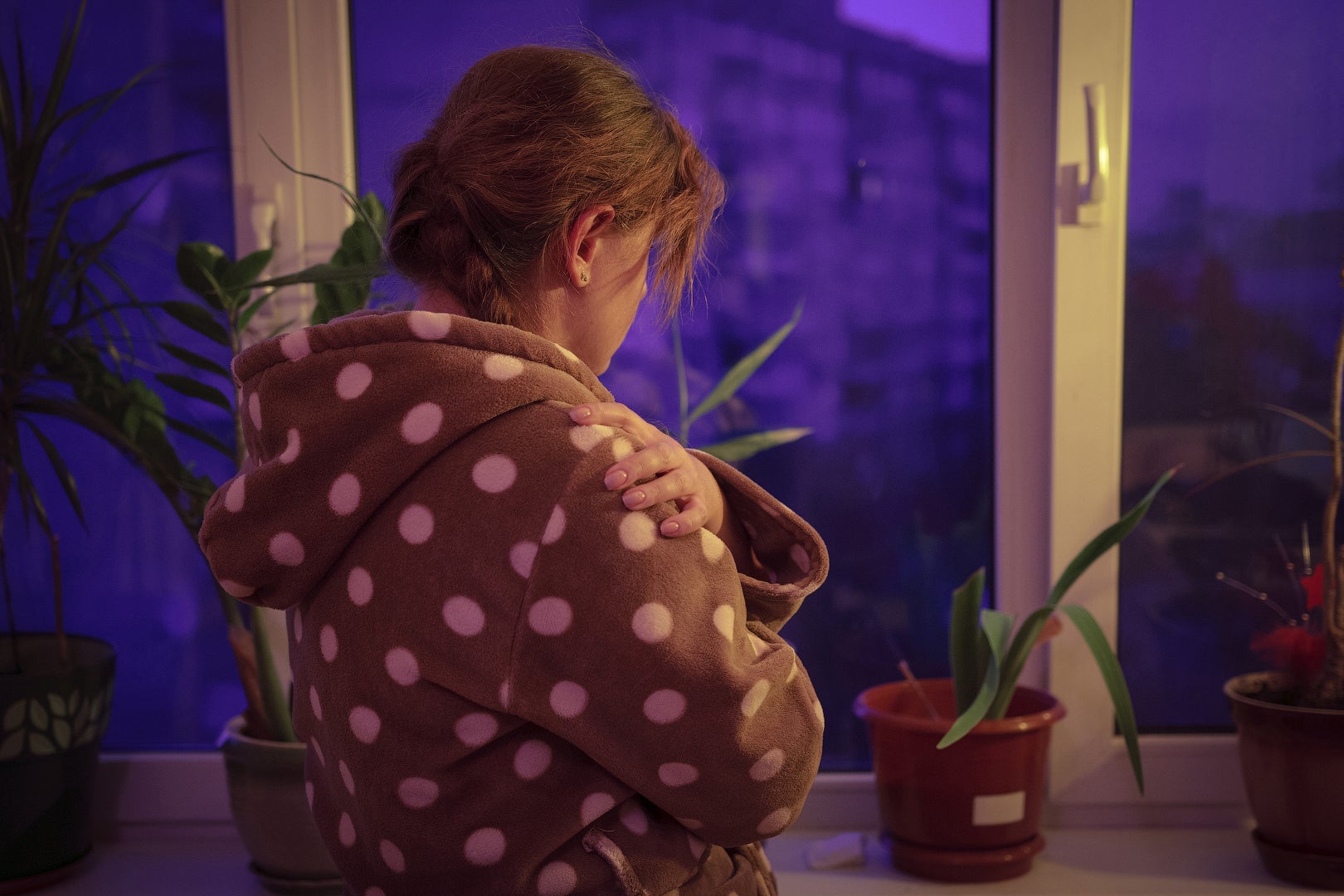
Hanna.
Hanna left her city in Donbas back in 2014 when she was 23. At the time, it seemed to her that Odesa would become an island of safety for her after the difficult months since the beginning of the military conflict, uncertainty, loss of her home, the job she loved, her parents and friends. In addition, another life depended on her, the life of her 2-year-old son.
Anna was confident in her abilities because she already had an employment record: she is a psychologist. However, at first, it was difficult: the first months outside her hometown were difficult. In addition, her son was traumatised and needed care and treatment after all the events they had to endure.
Anna met a man who seemed to be loving, strong and sensitive. Her faith prompted her to take an important step: she gave birth to the second child. Yet, escaping from one danger, Anna found herself in another.
“How did I end up in the shelter? I was subjected to financial abuse,” Hanna says clearly. She notes that she has not been subjected to any other forms of abuse: “I’m strong enough and would never let anyone raise a hand against myself or my children.”
The woman openly says that her man controlled every penny. All expenses were under his control, even for personal hygiene. In order to make any purchases, Hanna had to get her husband’s permission. He even forcibly took away Hanna’s social benefits card, which she had as a migrant. She turned to her husband’s parents but did not find any support, and eventually her patience ran out. Hanna started looking for ways to break the cycle of abuse.
In the social security institution, the woman saw the contacts of the shelter and made the decision immediately. Hanna took her two children, went to the shelter and told herself that all subsequent negotiations with her husband would be conducted only with the involvement of lawyers.
At the shelter, Hanna was consulted and offered to be tested for HIV. The woman was convinced that HIV had nothing to do with her. And that is why she could not believe it when the screening result came back positive. Hanna was explained that it was necessary to undergo further examination, but the woman did not believe and refused.
However, during our conversation, she agreed to go to the AIDS Centre, although she still believed that the results were wrong. Despite everything, Hanna is full of plans for the future: she is convinced she will deal with all property issues, and “she will also deal with HIV.”
In farewell, Hanna says that her optimism will definitely overcome all troubles. We sincerely wish her not to lose faith in justice, friendly help and indifference of the people. In turn, social workers will make every effort to ensure that Hanna is further examined at the AIDS Centre and is not left without help.
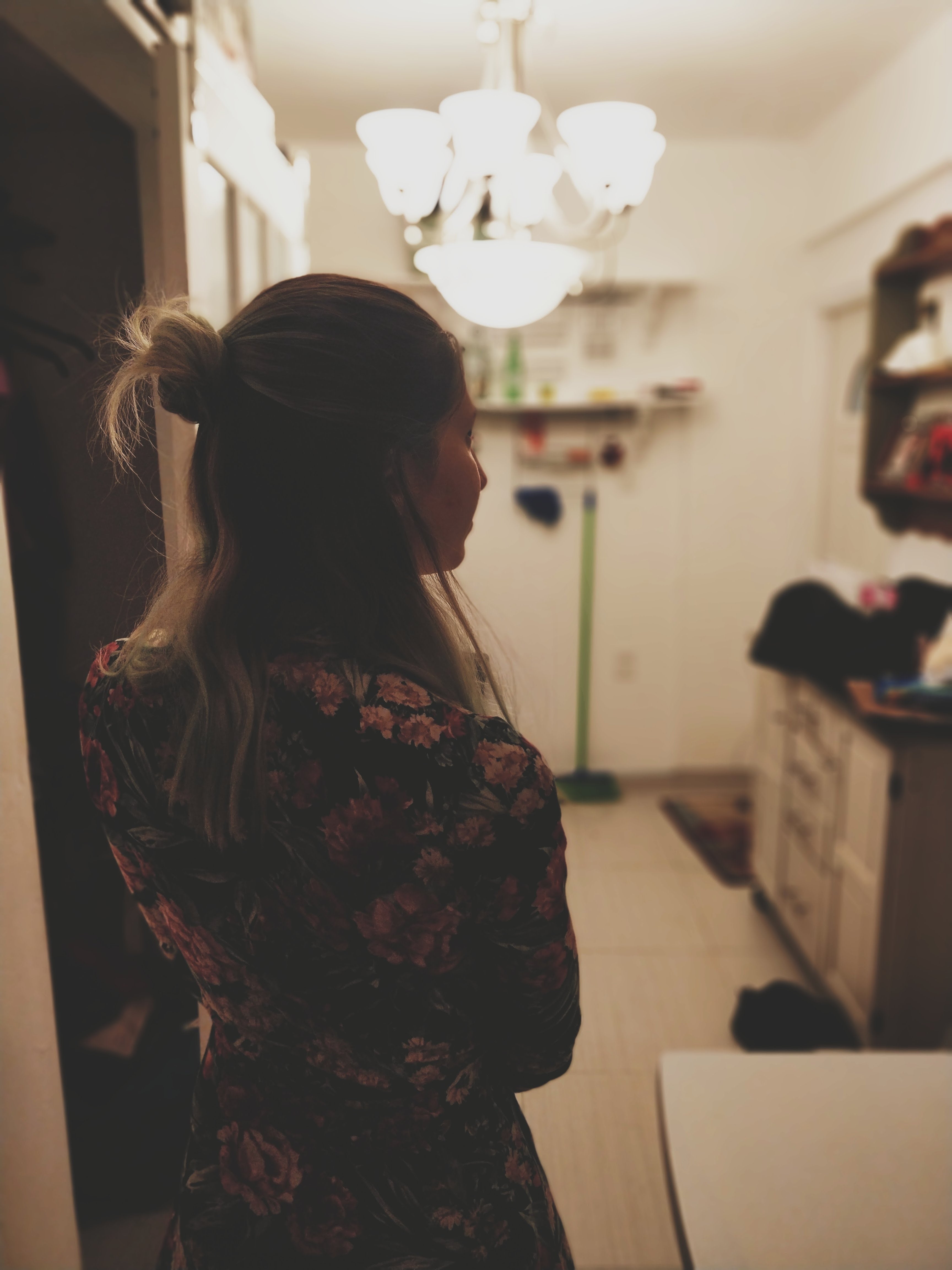
Illustration - Pexels/Bea Lebrun
Natalka.
Natalka was born and raised in a small village in the Odesa region. She found her future husband on a dating website. Everything seemed surprisingly fine: she moved to Odessa to her husband, thinking life would be happy and prosperous. Her man was employed by a construction company and had, as people say, a “clever pair of hands”; he could fix electricity, replace plumbing. He always did what she asked for and made money every day.
After some time, the couple had a son. But despite all the hopes for happiness, all hell broke loose after the birth of the child. Her man was very jealous, took away the phone, and one day started beating her.
The most horrible thing was that after the beating he would force Natalka to have sexual intercourse with him. If she refused, he would not let her eat. All this happened in front of her mother-in-law, who said that Natalka was to blame because she drove her husband to such a state.
One day, after a severe beating, she decided to leave the house with her child and went to a shelter, where she was asked to take an HIV test.
She could not even imagine that the test would come back positive. The woman was stunned; the road to the AIDS centre seemed endless. Then there was an examination, counselling, psychological assistance, the decision to start ART. In desperation, she sought contact with her husband to tell such terrible news. Yet, the terrible news was that her husband had been registered at the AIDS Centre for the past 2 years and had “forgotten” to inform her. The mother-in-law started accusing the woman that her son was HIV-positive.
The terrible news of HIV knocked the woman off her feet. She was always insecure and very vulnerable, and now everything looked as if she was completely unprotected. All this time the woman was helped in the shelter.
Time and human kindness helped Natalka to survive this stage of life. Today she is employed, rents an apartment, and her son goes to kindergarten; the woman believes in ART and sees her illness as a chronic disease, the one that can be controlled.
“I am still young. My illness is not neglected. I am sure that they will invent a medicine that will make me healthy!” Natalka says in farewell.
We also hope that everything will be fine!
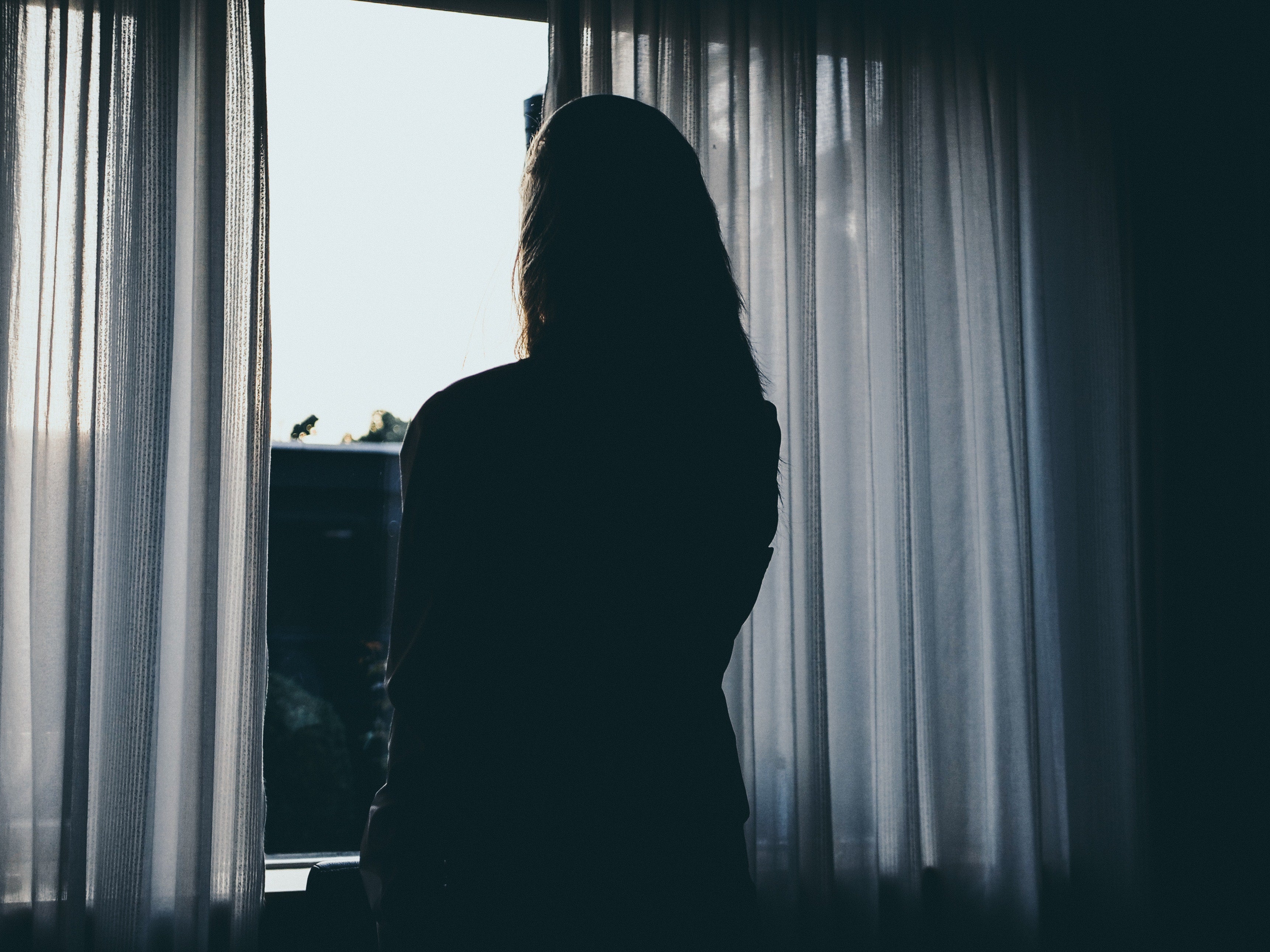
Olha.
When Olha went down a memory lane, the first feeling was pain and a terrible grudge against her mother. When she was young, she often slept with lights on, afraid of the darkness and aggression of her mother, who often came home drunk at night. As a child, Olha thought she was an inconvenience to everyone and was afraid that she would be thrown out of the house.
The woman was twice married and has two daughters, aged 10 and 14. She avoids talking about her two marriages: the first man died under unclear circumstances, and the second, after serving his sentence in prison and release, lived a short life.
The woman came to the shelter with the help of a local deputy, because she was at loggerheads with her mother, and at some point, it became impossible to live together.
“My daughters are the only ones who keep me in this world. I live for them and I can do everything,” said the woman.
When she went to the shelter for the first time, she asked if HIV-positive women were allowed to stay there. It turned out that she was HIV-positive but pretended to be just checking the attitude of the staff to the issue. She calmly agreed to the testing. It turned out that the woman has been registered at the AIDS Centre, but she had no plans to continue ART.
“I am not going to live a long life. I need 4-5 years for my girls to grow up a bit. Why would I have such a horrible life?” the woman said in despair during the first consultation.
Olha’s life in the shelter did not work out. One time she decided to have a loud celebration on the occasion of her birthday. She damaged the shelter’s property while inebriated. Due to the violation of the rules, Olha was asked to leave the shelter.
She did not leave on good terms, never apologised and made no requests to stay. And, nevertheless, the psychological help that was provided to her in the shelter and later, has radically changed the situation. Now she resumed ART once again and, apparently, has realised that 4-5 years of life will not be enough for girls to become adults and independent. Today, Olha is employed and rents an apartment, the girls go to school and are good students. The woman is extremely proud of this. She is still working with therapists and sees the period when she left the shelter as an opportunity to build her own life.
Illustration - Pexels/Bas Masseus

